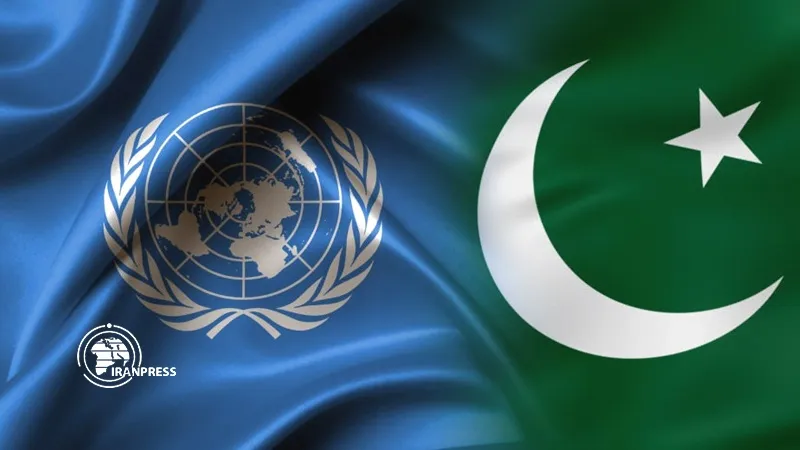Pakistan, a South Asian nation with a rich history and diverse culture, has played a significant role in various international organizations since its inception in 1947.
This article aims to shed light on Pakistan’s membership in the United Nations (UN), its association with the Organization of Islamic Cooperation (OIC), its non-permanent membership in the UN, countries that opposed its UN membership, its affiliation with the World Health Organization (WHO).
Why Pakistan Joined the United Nations in 1947
Pakistan emerged as an independent state on August 14, 1947, following the partition of British India. Soon after its creation, Pakistan realized the importance of joining the United Nations to establish itself as a responsible member of the global community.
On September 30, 1947, Pakistan was admitted as a member of the UN, enabling it to actively participate in global affairs, promote peace and security, and address socio-economic challenges at both national and international levels.
Pakistan’s Membership in the Organization of Islamic Cooperation
Pakistan became a member of the Organization of Islamic Cooperation (OIC) on September 25, 1969. The OIC is an international organization that promotes unity and cooperation among its member states, representing the collective voice of the Muslim world.
Pakistan’s membership in the OIC has facilitated diplomatic relations and collaboration with other Muslim-majority countries, enabling the nation to address common challenges, uphold Islamic principles, and strengthen economic and cultural ties.
Pakistan’s Non-Permanent Membership in the United Nations
Pakistan has served as a non-permanent member of the United Nations Security Council (UNSC) multiple times. As of 2021, Pakistan has been elected seven times as a non-permanent member. These terms were in 1952-1953, 1968-1969, 1976-1977, 1983-1984, 1993-1994, 2003-2004, and 2012-2013. Pakistan’s repeated election to the UNSC demonstrates its recognition by the international community and its contributions to global peacekeeping efforts, conflict resolution, and adherence to international law.
Opposition to Pakistan’s Membership in the United Nations
During Pakistan’s application for UN membership, India opposed its inclusion, arguing that the partition of British India should have resulted in a single Indian state. India believed that Pakistan’s creation as a separate country was unjustified, and thus, it resisted Pakistan’s admission to the United Nations. However, Pakistan’s cause was supported by other nations, leading to its successful inclusion in the UN.
Pakistan’s Membership in the World Health Organization
Pakistan has been a member of the World Health Organization (WHO) since its inception. The WHO is a specialized agency of the United Nations responsible for international public health. Pakistan’s membership allows it to collaborate with other countries in addressing health-related challenges, sharing knowledge and resources, and contributing to global health policies.
The Role of Pakistan in the United Nations
Pakistan has also contributed to the work of various UN agencies and bodies, including the UN General Assembly, the UN Economic and Social Council (ECOSOC), and the UN Human Rights Council (UNHRC).
Pakistan has been an advocate for the promotion and protection of human rights, particularly in the context of the Kashmir conflict. It has also been active in promoting sustainable development and climate change initiatives, as well as advancing gender equality and women’s empowerment.
Pakistan’s role in the United Nations has been recognized by the international community. In 2019, Pakistan was elected to the UNHRC for a three-year term, highlighting its commitment to human rights and the rule of law. Pakistan has also been awarded the UN Peacekeeping Medal in recognition of its contributions to UN peacekeeping missions.
FAQ
Why did Pakistan join the United Nations?
Pakistan joined the United Nations in 1947 to establish itself as a responsible member of the global community, participate in global affairs, promote peace and security, and address socio-economic challenges at both national and international levels.
When did Pakistan become a member of the OIC?
Pakistan became a member of the Organization of Islamic Cooperation (OIC) on September 25, 1969.
How many times has Pakistan served as a non-permanent member of the UN?
Pakistan has served as a non-permanent member of the United Nations Security Council (UNSC) seven times. These terms were in 1952-1953, 1968-1969, 1976-1977, 1983-1984, 1993-1994, 2003-2004, and 2012-2013.
Which country opposed Pakistan’s membership in the UN?
India opposed Pakistan’s membership in the United Nations during its application, arguing that the partition of British India should have resulted in a single Indian state. However, Pakistan’s cause was supported by other nations, leading to its successful inclusion in the UN.


